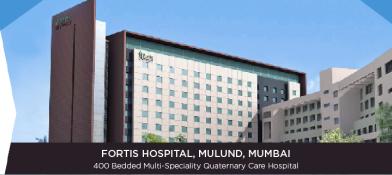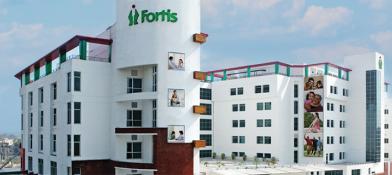About Oral and Maxillofacial Surgery
What is Maxillofacial Surgery
Maxillofacial surgery, also called oral and maxillofacial surgery (OMFS), is a specialized field of dentistry that diagnoses and treats conditions affecting the face, jaw, mouth, and neck. It includes a wide array of procedures from corrective jaw surgeries to facial trauma reconstruction due to congenital and developmental anomalies, traumatic injuries, infections, and tumors.
Maxillofacial surgeons are specialists who play a significant part in restoring both form and function to the following essential body areas:
- Bones and tissues of the jaw and lower part of the face
- The roof of the mouth
- Teeth
Types of Maxillofacial Surgeries
- Orthognathic Surgery: Orthognathic surgery is conducted to correct misalignments of the jaw and facial bones, like underbites, overbites, and asymmetrical jaw growth, to improve the bite function and facial aesthetics.
- Facial Trauma Reconstruction: Facial trauma due to accidents, falls, physical assaults or sports injuries is treated through surgical procedures to repair broken facial bones, restore soft tissue damage, and reduce scarring.
- Dental Implant Surgery: Dental implants are surgically implanted into the jawbone to replace missing teeth after assessing bone density, anatomy, and oral health suitability for dental implant placement.
- Treatment for Temporomandibular Joint (TMJ) Disorders: Maxillofacial surgeons use multiple treatment modalities, like medicines, physical therapy, and minimally invasive techniques, to reduce symptoms and restore normal jaw function in cases with abnormal temporomandibular joint - the joint between the jawbone and the skull.
- Cleft Lip and Palate Repair: Maxillofacial surgeons coordinate with multidisciplinary teams to conduct corrective surgeries that close the clefts, improve speech, enhance eating patterns, and enhance facial aesthetics.
- Bone Grafting: This procedure involves transplanting a bone from one area of the body to another. It can be used to replace a missing jawbone.
Procedure
The choice of maxillofacial surgery depends on the patient’s condition and the feasibility of the procedure. Some surgeries can be conducted in an outpatient setting, while others need multiple surgeries to achieve optimal results. Maxillofacial surgeons are trained and authorized to deliver anesthesia to prevent pain. Some usual steps of a maxillofacial surgery include the following:
- The maxillofacial surgeon enquires about the patient’s symptoms, medical history, and current medications, if any.
- The oral cavity and surrounding areas are examined.
- To identify the problem, tests such as dental X-rays or 3D scans, which provide detailed images of the maxillofacial structures, are prescribed.
- Diagnosis and treatment are carried out.
- If surgery is performed, it might involve stitches (which either dissolve or can be removed within a week), and packing might be placed in the mouth to protect the teeth.
- After the surgery, the person is shifted to a recovery room to recover from anesthesia and might experience some pain, bleeding, bruising, and swelling.
- Chewy, crunchy, hard foods; tobacco; and alcohol might be restricted for some days or weeks.
- Inflammation in the operated area can be reduced by applying ice packs.
- Exercising should be avoided for a few days after the procedure as it can increase the chances of bleeding and swelling.
- Instead of brushing the teeth, the mouth should be rinsed to kill bacteria.
Advanced Techniques and Technologies
Advancements in technologies and techniques have transformed the field of maxillofacial surgery. They have enabled accurate diagnoses, minimally invasive procedures, and quicker recovery times. Some noteworthy innovations include computer-aided surgical planning, intraoperative navigation systems, 3D printing for surgical guides and implants, and virtual surgical simulations.
Benefits of Maxillofacial Surgery
Maxillofacial surgeries offer various benefits in terms of functional restoration and aesthetic enhancement. Some of these benefits include:
- Improved Functionality: One of the main objectives of maxillofacial surgery is to restore normal functioning of the oral and facial areas. The procedures can correct misalignments of the jaw, improve jaw movement, and enhance bite function, chewing ability, and speech articulation while reducing pain.
- Better Aesthetics: Maxillofacial surgery can significantly improve facial aesthetics by restoring facial symmetry and proportion, thereby boosting self-confidence and psychosocial well-being.
- Long-Term Oral Health: Dental implant surgery provides sustainability by replacing missing teeth, preventing further bone resorption, and preserving oral health.
- Treatment of Complex Conditions: Maxillofacial surgeons are equipped to address many complex conditions through meticulous surgical planning and execution.
Complications in Maxillofacial Surgery
While maxillofacial surgery provides multiple benefits, it can also carry inherent risks that people must be aware of. Some of these complications include:
- Risk of Infection: Like any surgical procedure, maxillofacial surgery carries a risk of postoperative infection.
- Nerve Damage: Certain maxillofacial surgeries involve the manipulation of facial nerves or delicate anatomical structures and pose a risk of nerve injury.
- Soft Tissue Complications: Procedures involving soft tissue grafting, such as cleft lip and palate repair, might lead to complications such as wound dehiscence (separation of wound edges), hematoma formation (blood clot clusters), or tissue necrosis (death of tissue cells).
- Hemorrhage: Bleeding can occur during or after a maxillofacial surgery, leading to complications such as hematoma formation, airway compromise, or hypovolemic shock (severe blood loss causing the heart to pump insufficient blood to the organs).
- Dental Implant Failures: Dental implant surgeries can sometimes result in complications such as implant malposition, peri-implantitis (inflammation of the tissues surrounding the implant), or osseointegration failure (failure to remove bone growth into the metal implant).
- Dry socket: This painful condition can occur after tooth extraction. It entails blood clotting issues.
- Numbness: Changes in sensation in the mouth or other areas of your face can occur after the procedure.
- Root Fragments: A piece of tooth root can break off and be left behind in the operated area after the surgical procedure.
A maxillofacial surgery includes diverse procedures to restore function, aesthetics, and quality of life for patients with facial, jaw, mouth, and neck conditions. Through advanced surgical techniques, innovative technologies, and multidisciplinary collaboration, maxillofacial surgeons continue pushing the boundaries of medical science, offering hope and healing to the people.
Related Specialities
Other Specialities
-
Explore Hospitals for
Fortis Cancer Institute, Defence Colony, New Delhi Fortis Memorial Research Institute, Gurgaon Fortis CDOC, Chirag Enclave, New Delhi Fortis Escorts Heart Institute, New Delhi Fortis Flt. Lt. Rajan Dhall Hospital, Vasant Kunj, New Delhi Fortis La Femme, Greater Kailash II, New Delhi Fortis Escorts Hospital, Faridabad Fortis Hospital, Noida Fortis Hospital, Shalimar Bagh, New Delhi Fortis Escorts Hospital, Amritsar Fortis Hospital, Mohali Fortis Escorts Hospital, Jaipur Fortis Hospital, Anandpur, Kolkata Fortis Hospital CG Road Bangalore Fortis Hospital - Greater Noida Fortis Hospital & Kidney Institute, Gariahat, Kolkata Fortis Hospital BG Road Bangalore Fortis Nagarbhavi Bangalore Fortis Hospital, Rajajinagar, Bengaluru Fortis Hospital, Richmond Road, Bengaluru Hiranandani Fortis Hospital, Vashi, Mumbai Fortis Hospital, Mulund, Mumbai Fortis Hospital, Kalyan, Mumbai Fortis Hospital, Ludhiana S L Raheja Hospital, Mumbai Fortis Hospital Mall Road, Ludhiana -
Explore Doctors for by Hospital
Doctors in Fortis Cancer Institute, Defence Colony, New Delhi Doctors in Fortis Memorial Research Institute, Gurgaon Doctors in Fortis CDOC, Chirag Enclave, New Delhi Doctors in Fortis Escorts Heart Institute, New Delhi Doctors in Fortis Flt. Lt. Rajan Dhall Hospital, Vasant Kunj, New Delhi Doctors in Fortis La Femme, Greater Kailash II, New Delhi Doctors in Fortis Escorts Hospital, Faridabad Doctors in Fortis Hospital, Noida Doctors in Fortis Hospital, Shalimar Bagh, New Delhi Doctors in Fortis Escorts Hospital, Amritsar Doctors in Fortis Hospital, Mohali Doctors in Fortis Escorts Hospital, Jaipur Doctors in Fortis Hospital, Anandpur, Kolkata Doctors in Fortis Hospital CG Road Bangalore Doctors in Fortis Hospital - Greater Noida Doctors in Fortis Hospital & Kidney Institute, Gariahat, Kolkata Doctors in Fortis Hospital BG Road Bangalore Doctors in Fortis Nagarbhavi Bangalore Doctors in Fortis Hospital, Rajajinagar, Bengaluru Doctors in Fortis Hospital, Richmond Road, Bengaluru Doctors in Hiranandani Fortis Hospital, Vashi, Mumbai Doctors in Fortis Hospital, Mulund, Mumbai Doctors in Fortis Hospital, Kalyan, Mumbai Doctors in Fortis Hospital, Ludhiana Doctors in S L Raheja Hospital, Mumbai Doctors in Fortis Hospital Mall Road, Ludhiana











